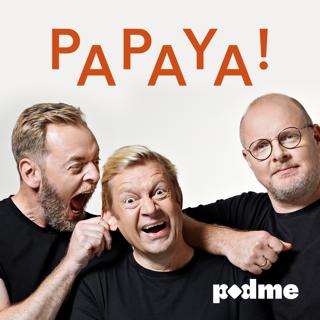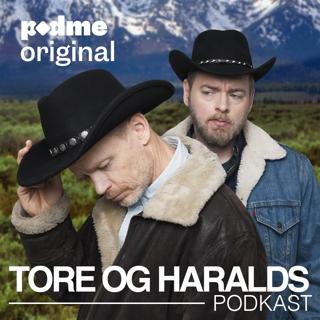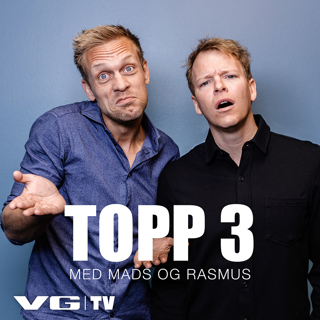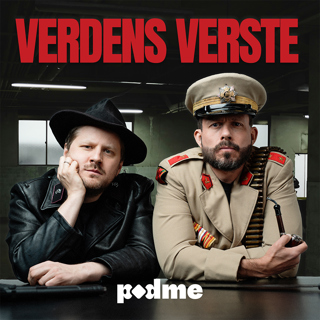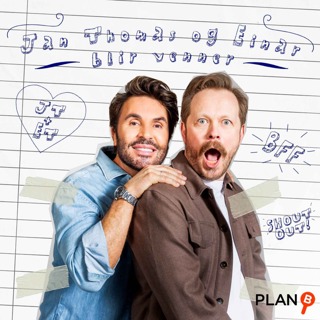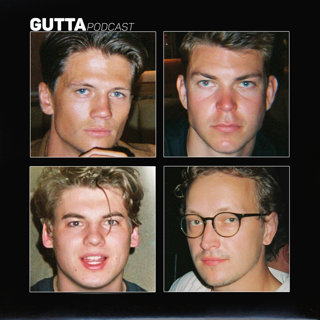
76. The Princess Bride (1987)
The Princess Bride is a 1987 American fantasy adventure comedy film directed and co-produced by Rob Reiner, starring Cary Elwes, Robin Wright, Mandy Patinkin, Chris Sarandon, Wallace Shawn, André the Giant, and Christopher Guest. Adapted by William Goldman from his 1973 novel The Princess Bride, it tells the story of a farmhand named Westley, accompanied by companions befriended along the way, who must rescue his true love Princess Buttercup from the odious Prince Humperdinck. The film essentially preserves the novel's narrative style by presenting the story as a book being read by a grandfather (Peter Falk) to his sick grandson (Fred Savage).
23 Apr 20201h 20min

75. Rosemary's Baby (1968)
Rosemary's Baby is a 1968 American horror film written and directed by Roman Polanski, based on the novel Rosemary's Baby by Ira Levin. The cast features Mia Farrow, John Cassavetes, Ruth Gordon, Sidney Blackmer, Maurice Evans, Ralph Bellamy, Angela Dorian, Clay Tanner, and, in his feature film debut, Charles Grodin. The film chronicles the story of a pregnant woman who suspects that an evil cult wants to take her baby for use in their rituals. Rosemary's Baby deals with themes related to paranoia, women's liberation, Christianity (Catholicism), and the occult.[3] The film earned almost universal acclaim from film critics and won numerous nominations and awards. In 2014, the film was selected for preservation in the National Film Registry by the Library of Congress, being deemed "culturally, historically, or aesthetically significant." Script In Rosemary's Baby: A Retrospective, a featurette on the DVD release of the film, screenwriter/director Roman Polanski, Paramount Pictures executive Robert Evans, and production designer Richard Sylbert reminisce at length about the production. Evans recalled William Castle brought him the galley proofs of the book and asked him to purchase the film rights even before Random House published the book. The studio head recognized the commercial potential of the project and agreed with the stipulation that Castle, who had a reputation for low-budget horror films, could produce but not direct the film adaptation. He makes a cameo appearance as the man at the phone booth waiting for Mia Farrow to finish her call. Evans admired Polanski's European films and hoped he could convince him to make his American debut with Rosemary's Baby. He knew the director was a ski buff who was anxious to make a film with the sport as its basis, so he sent him the script for Downhill Racer along with the galleys for Rosemary. Polanski read the latter book non-stop through the night and called Evans the following morning to tell him he thought Rosemary was the more interesting project, and would like the opportunity to write as well as direct it. The script was modeled very closely on the original novel and incorporated large sections of the novel's dialogue and details. Nearly every line of dialogue was taken from the novel's text. Author Ira Levin claimed that during a scene in which Guy mentions wanting to buy a particular shirt advertised in The New Yorker, Polanski was unable to find the specific issue with the shirt advertised and phoned Levin for help. Levin, who had assumed while writing that any given issue of The New Yorker would contain an ad for men's shirts, admitted that he had made it up. Cast Mia Farrow as Rosemary Woodhouse John Cassavetes as Guy Woodhouse Ruth Gordon as Minnie Castevet Sidney Blackmer as Roman Castevet/Steven Marcato Maurice Evans as Hutch Ralph Bellamy as Dr. Abraham Sapirstein Charles Grodin as Dr. Hill Patsy Kelly as Laura-Louise Angela Dorian as Terry Gionoffrio Elisha Cook as Mr. Nicklas Emmaline Henry as Elise Dunstan Hanna Landy as Grace Cardiff Philip Leeds as Dr. Shand Hope Summers as Mrs. Gilmore D'Urville Martin as Diego Marianne Gordon as Rosemary's Girlfriend Wendy Wagner as Rosemary's Girlfriend Fritzi Jane Courtney as woman at party Academy Awards Academy Award for Best Supporting Actress (Ruth Gordon, winner) Academy Award for Best Adapted Screenplay (nominee) Golden Globe Awards Golden Globe Award for Best Supporting Actress - Motion Picture (Gordon, winner) Golden Globe Award for Best Actress - Motion Picture Drama (Farrow, nominee) Golden Globe Award for Best Screenplay (nominee) Golden Globe Award for Best Original Score (nominee) Other awards BAFTA Award for Best Actress in a Leading Role (Mia Farrow, nominee) Directors Guild of America Award for Outstanding Directorial Achievement in Motion Pictures (nominee) Writers Guild of America Award for Best Written American Drama (nominee) David di Donatello Award for Best Foreign Actress (Mia Farrow, winner) David di Donatello Award for Best Foreign Director (winner) Edgar Allan Poe Award for Best Motion Picture Screenplay (nominee) French Syndicate of Cinema Critics Award for Best Foreign Film (winner) Kansas City Film Critics Circle Award for Best Supporting Actor (Sidney Blackmer, winner) Kansas City Film Critics Circle Award for Best Supporting Actress (Gordon, winner)
16 Apr 20201h 25min

74. Network (1976)
Network is a 1976 American satirical drama film written by Paddy Chayefsky and directed by Sidney Lumet, about a fictional television network, UBS, and its struggle with poor ratings. The film stars Faye Dunaway, William Holden, Peter Finch and Robert Duvall and features Wesley Addy, Ned Beatty and Beatrice Straight. The film won four Academy Awards, in the categories of Best Actor (Finch), Best Actress (Dunaway), Best Supporting Actress (Straight) and Best Original Screenplay (Chayefsky). In 2000, the film was selected for preservation in the United States National Film Registry by the Library of Congress as being "culturally, historically, or aesthetically significant". In 2002, it was inducted into the Producers Guild of America Hall of Fame as a film that has "set an enduring standard for American entertainment".[3] In 2005, the two Writers Guilds of America voted Chayefsky's script one of the 10 greatest screenplays in the history of cinema.[4][a] In 2007, the film was 64th among the 100 greatest American films as chosen by the American Film Institute, a ranking slightly higher than the one AFI had given it ten years earlier. Faye Dunaway as Diana Christensen William Holden as Max Schumacher Peter Finch as Howard Beale Robert Duvall as Frank Hackett Wesley Addy as Nelson Chaney Ned Beatty as Arthur Jensen Beatrice Straight as Louise Schumacher Jordan Charney as Harry Hunter William Prince as Edward Ruddy Lane Smith as Robert McDonough Marlene Warfield as Laureen Hobbs Conchata Ferrell as Barbara Schlesinger Carolyn Krigbaum as Max's secretary Arthur Burghardt as the Great Ahmet Khan Cindy Grover as Caroline Schumacher Darryl Hickman as Bill Herron Lee Richardson as the Narrator (voice) Lance Henriksen as Network lawyer (uncredited) Network came only two years after the first on-screen suicide in television history, of television news reporter Christine Chubbuck in Sarasota, Florida.[6][dead link] The anchorwoman was suffering from depression and loneliness, was often emotionally distant from her co-workers, and shot herself on camera as stunned viewers watched on July 15, 1974. Chayefsky used the idea of a live death as his film's focal point, saying later in an interview, "Television will do anything for a rating ... anything!" However, Dave Itzkoff's book Mad as Hell: The Making of Network and the Fateful Vision of the Angriest Man in Movies disputes that Chayefsky was inspired by the Chubbock case, asserting that Chayefsky actually began writing Network months before Chubbuck's death and already planned for Howard Beale to vow to kill himself on air, and that Chubbuck's suicide was simply an eerie parallel.[7] Sidney Lumet also confirmed that the character of Howard Beale was never based on any real life person.[8] Still, the Chubbuck case is mentioned in Chayefsky's screenplay.[citation needed] Before beginning his screenplay, Chayefsky visited network TV offices. Sitting in on meetings at CBS and NBC, he noted "the politics, the power struggles, the obsession with ratings."[9] He was also surprised to learn that television executives did not watch much television. "The programs they put on 'had to' be bad," he said, "had to be something they wouldn't watch. Imagine having to work like that all your life."[10] According to Dave Itzkoff, what Cheyefsky saw while writing the screenplay during the midst of Watergate and the Vietnam war was all the anger of America being broadcast in everything from sitcoms to news reports. He concluded that Americans "don't want jolly, happy family type shows like Eye Witness News" ... "the American people are angry and want angry shows."[11] When he began writing his script he had intended on a comedy, but instead poured his frustration at the broadcasts being shown on television, which he described as "an indestructible and terrifying giant that is stronger than the government" — into the screenplay. It became a "dark satire about an unstable news anchor and a broadcasting company and a viewing public all too happy to follow him over the brink of sanity."[11] The character of network executive Diana Christiansen was based on NBC daytime television programming executive Lin Bolen,[12] which Bolen disputed.[13] Chayefsky and producer Howard Gottfried had just come off a lawsuit against United Artists, challenging the studio's right to lease their previous film, The Hospital, to ABC in a package with a less successful film. Despite this recent lawsuit, Chayefsky and Gottfried signed a deal with UA to finance Network, until UA found the subject matter too controversial and backed out. Undeterred, Chayefsky and Gottfried shopped the script around to other studios, and eventually found an interested party in Metro-Goldwyn-Mayer. Soon afterward, United Artists reversed itself and looked to co-finance the film with MGM, since the latter had an ongoing distribution arrangement with UA in North America. Since MGM agreed to let UA back on board, the former (through United Artists as per the arrangement) controlled North American/Caribbean rights, with UA opting for overseas distribution.
9 Apr 20201h 54min

73. The Bad News Bears (1976)
The Bad News Bears is a 1976 American sports comedy film directed by Michael Ritchie and written by Bill Lancaster. It stars Walter Matthau and Tatum O'Neal. The film was followed by two sequels, The Bad News Bears in Breaking Training in 1977 and The Bad News Bears Go to Japan in 1978, a short-lived 1979–80 CBS television series, and a 2005 remake. Notable was the score by Jerry Fielding, which is an adaptation of the principal themes of Bizet's opera Carmen. PODCAST NOTES: Bernie Kaminski is my guest (00:02), Bernie's amazing paper mache pop-cultural artwork (follow @berniekaminski for more) (2:00), Jason and Bernie's contrasting Little League experiences (7:00), Happy Days vs Media All Stars celebrity softball game excerpt (9:00), Matthau's incredible and heartbreaking dugout argument scene with Tatum O'Neal (10:30), Alternative casting: Warren Beatty and Steve McQueen (11:00), Walter Matthau 'quitting' scene (13:00), Matthau in 'The Taking of Pelham 123' (13:30), Bill Lancaster, screenwriter of 'Bad News Bears' and 'The Thing' (14:00), introduction of Kelly Leak scene 'Thanks, Mister' (17:00), Matthau's scene in the dugout where he's taking it too seriously (19:00), kids temperment as reflected in their jerky sideline parents at sporting events (22:00), Bernie's surprisingly impressive and underrated Little League career, including his score book from 1976 (24:00), Olgivie's baseball patch jacket in The Bad News Bears (27:30), 'Alice Doesn't Live Here Anymore' scene with Alfred Lutter as Tommy (28:00), 'Breaking Away' with Jackie Earle Haley (34:30), Jackie Earle Haley in 'Little Children' (37:30), William Devane in 'The Bad News Bears: Breaking Training' and the uselessness of the sequels (39:00), great scene between Buttermaker and Ahmad Abdul Rahim in the tree after the loss to the Yankees (42:30), Beer can collecting in 1970s childhood (46:30), Bernie's Latch-Key TV selections.
26 Mar 20201h 14min

72. Dirty Dancing (1987)
Dirty Dancing is a 1987 American romantic drama dance film written by Eleanor Bergstein, produced by Linda Gottlieb, and directed by Emile Ardolino. It stars Jennifer Grey as Frances "Baby" Houseman, a young woman who falls in love with dance instructor Johnny Castle (Patrick Swayze) at a holiday resort. The film was based on screenwriter Eleanor Bergstein's own childhood. She originally wrote a screenplay for the Michael Douglas film It's My Turn, but ultimately ended up conceiving a story for a film which became Dirty Dancing. She finished the script in 1985, but management changes at MGM put the film in development hell. The production company was changed to Vestron Pictures with Emile Ardolino as director and Linda Gottlieb as producer. Filming took place in Lake Lure, North Carolina, and Mountain Lake, Virginia, with the film's score composed by John Morris and dance choreography by Kenny Ortega. Dirty Dancing premiered at the 1987 Cannes Film Festival on May 12, 1987, and was released on August 21, 1987, in the United States, earning over $214 million worldwide.[2] It was the first film to sell more than a million copies for home video,[2] and its soundtrack created by Jimmy Ienner generating two multi-platinum albums and multiple singles, including "(I've Had) The Time of My Life", which won both the Golden Globe and Academy Award for Best Original Song, and a Grammy Award for best duet.[3] The film's popularity led to a 2004 prequel, Dirty Dancing: Havana Nights, and a stage version which has had sellout performances in Australia, Europe, and North America. A made-for-TV remake was also released in 2017.[4]
19 Mar 20201h 31min

71. Phantasm (1979)
Phantasm is a 1979 American science fantasy horror film directed, written, photographed, and edited by Don Coscarelli. The first film in the Phantasm franchise, it introduces the Tall Man (Angus Scrimm), a supernatural and malevolent undertaker who turns the dead of Earth into dwarf zombies to be sent to his planet and used as slaves. He is opposed by a young boy, Mike (Michael Baldwin), who tries to convince his older brother Jody (Bill Thornbury) and family friend Reggie (Reggie Bannister) of the threat. Phantasm was a locally financed independent film; the cast and crew were mostly amateurs and aspiring professionals. Though initial reviews were mixed in regards to the dreamlike, surreal narrative and imagery, later reception was more positive and the film became a cult classic. It has appeared on several critics' lists of best horror films, and it has been cited as an influence on later horror series. It was followed by four sequels: Phantasm II (1988), Phantasm III: Lord of the Dead (1994), Phantasm IV: Oblivion (1998) and Phantasm: Ravager (2016).
12 Mar 20201h 7min

70. The Outsiders (1983)
The Outsiders is a 1983 American coming-of-age drama film directed by Francis Ford Coppola, an adaptation of the 1967 novel of the same name by S. E. Hinton. The film was released on March 25, 1983. Jo Ellen Misakian, a librarian at Lone Star Elementary School in Fresno, California, and her students were responsible for inspiring Coppola to make the film.[2] The film is noted for its cast of up-and-coming stars, including C. Thomas Howell (who garnered a Young Artist Award), Rob Lowe, Emilio Estevez, Matt Dillon, Tom Cruise, Patrick Swayze, Ralph Macchio, and Diane Lane. The film helped spark the Brat Pack genre of the 1980s. Both Lane and Dillon went on to appear in Coppola's related film Rumble Fish; Dillon and Estevez also starred in Tex (1982). Emilio Estevez went on to write and star in That Was Then... This Is Now (1985), the only S. E. Hinton film adaptation not to star Matt Dillon. The film received mostly positive reviews from critics, most notably the performances, particularly Macchio being singled out for praise, and performed well at the box office, grossing $33.7 million on a $10.0 million budget. PODCAST NOTES Peter O'Connor joins Jason to talk about his favorite movie, 'The Outsiders' (0:01), 'The Outsiders' emotional pitch and tone and Coppola's intentions setting out in capturing a certain tenor of emotional height in the movie (3:00), Matt Dillon as Dally intro scene (3:00), C. Thomas Howell as Ponyboy intro scene (4:23), Tom Cruise and whether or not he nailed the accent in the movie (5:00), the infamous audition process for the film (6:00), Drive-In scene with C. Thomas Howell, Ralph Macchio, Matt Dillon, Diane Lane and Michelle Meyrink (6:30), Michelle Meyrink as Jordan in hilarious bathroom clip from 'Real Genius' with Gabriel Jarrett (8:00), Cast members age during filming (9:00), Tom Cruise in 'Risky Business', 'All The Right Moves' and 'The Outsiders' all in 1983 (9:30), Peter O'Connor's acting and career discussion of on-set behavioral norms changing over time, including the infamous Christian Bale caught-on-audio outburst on the 'Terminator' set (10:00), Auditioning for 'The Outsiders' including audio from some other actors' auditions (10:30), Rob Lowe on the audition process (12:00), Coppola's Zoetrope Studios 'One From The Heart' trailer with Teri Garr, Frederick Forrest, Tom Waits, Nastassia Kinski and Raul Julia (15:00), Peter emotionally defends 'Godfather 3' (16:30), the amazing story of how an elementary-school teacher caused S.E. Hinton's 'The Outsiders' to get made as a movie (18:30), Coppola's filming of the entire 'Outsiders' movie on one of the first VHS cameras (19:00), Greaser cast members vs soc cast members anecdotes (20:00), Peter's blue-collar acting chip on his shoulder (24:00), clip of the Gold poem scene with Johnny and Ponyboy from 'The Outsiders' (27:00), Panavision filming techniques used in 'The Outsiders' (28:00), Church fire scene and male teacher hilarious denial (30:00), S.E. Hinton's backstory writing 'The Outsiders' (31:00), Alternative Casting for 'The Outsiders' featuring Anthony Michael Hall, Kate Capshaw, Helen Slater, Val Kilmer, Mickey Rourke, Glenn Scarpelli, Vincent Spano, Adam Baldwin (35:00), 'My Bodyguard' scene with the incredible Adam Baldwin, Scott Baio, Dennis Quaid (36:30), Darren Dalton with C. Thomas Howell pre-rumble car talk scene from 'The Outsiders' (38:00), Leif Garrett scene from 'The Outsiders' (42:00) Peter's journey to acting (45:00), Peter's side hustle driving Al Pacino for 10 years in NYC (46:30), Matt Dillon in the brilliant 'Over The Edge' from 1979 (53:00), Matt Dillon's career including 'Crash', 'To Die For', 'Singles, and 'Drugstore Cowboy' (57:30), Peter telling Al Pacino he's the reason Peter became an actor (1:11:00), Phillip Seymour Hoffman as an influence on Peter; as probably the greatest actor of his generation and his great appearances in 'The Great Lebowski', 'Moneyball', 'Along Came Polly' and 'Charlie Wilson's War' (1:12:00), Peter meeting Meryl Streep in his underwear (1:15:00), 'Stay Gold, Ponyboy' 1:16:00), the 'Complete Novel' version of 'The Outsiders (1:18:00), Peter's 'Latch Key TV' choices, with 'The Incredible Hulk', 'The Dukes Of Hazzard', and 'The Muppet Show' (1:20:00).
27 Feb 20201h 31min

69. 12 Angry Men (1957)
12 Angry Men is a 1957 American courtroom drama film directed by Sidney Lumet, adapted from a teleplay of the same name by Reginald Rose. This courtroom drama tells the story of a jury of 12 men as they deliberate the conviction or acquittal of an 18-year old defendant on the basis of reasonable doubt, forcing the jurors to question their morals and values. 12 Angry Men explores many techniques of consensus-building and the difficulties encountered in the process among this group of men whose range of personalities adds to the intensity and conflict. It also explores the power one person has to elicit change. The jury members are identified only by number; no names are revealed until an exchange of dialogue at the very end. The film forces the characters and audience to evaluate their own self-image through observing the personality, experiences, and actions of the jurors. The film is also notable for its almost exclusive use of one set, where all but three minutes of the film take place. In 2007, the film was selected for the National Film Registry by the Library of Congress as being "culturally, historically, or aesthetically significant". The film was selected as the second-best courtroom drama ever by the American Film Institute during their AFI's 10 Top 10 list. PODCAST NOTES Episode intro and guest Brian Thompson mini-bio (00:01), Jason and Brian talk about their Yankee & Red Sox near-murder meet-cute story (2:30), Sidney Lumet and Brian's first experiences of '12 Angry Men' (7:00), Henry Fonda and critical thinking role models (9:00), The 'Kids These Days' scene from '12 Angry Men' (10:30), Disinterested Judge scene from '12 Angry Men' (16:30), Brian's doorbell rings and it's the FBI and NYPD (18:30), how to smuggle drugs and money into jail and prison (19:00), Skin care tips of the incarcerated (20:30), extreme experiences and how not to allow them to distance you from others (22:00), Lewisburg Penitentiary and re-entering real life as a human being and not a gladiator on the yard (22:30), Brian's brain injury and its impact on his addictions (24:00), Sidney Lumet's book 'Making Movies' and his thoughts about films like 'Dog Day Afternoon', 'Serpico, and 'Prince Of The City' (24:30), the cast of '12 Angry Men' (28:30), clip from '12 Angry Men' where Henry Fonda bets on humanity (30:00), Sidney Lumet on Henry Fonda as an actor (32:00), Brian's emotional response and personal connections to various scenes in '12 Angry Men', including the Jack Klugman "slum" scene (34:30), Brian's permanent exemption from jury duty (36:30), Brian's life of crime and his 'felony a day' lifestyle and some background on The Westies gang in NYC(38:00), Brian's time running among Chinatown gangsters in 1980's NYC (41:30), gang style in the 1970's (45:00), clip from '12 Angry Men' of the democracy speech from actor George Voscovec (46:30), legal realities and the obfuscation of same in '12 Angry Men' (45:30), Brian's arrests at age 12 and early incarcerations and prison GED leading to post-prison college and Master's degrees (52:00), Brian's career cooking at Bouley, Nobu, and a handful of other of NYC's finest dining establishments (57:00), Suicide or advanced degrees (58:30), the "these people" clip featuring Ed Begley from '12 Angry Men', with Sidney Lumet's incredible shot of actors turning their backs on Begley one by one (1:05:30), Sidney Lumet's incredible movement of the camera in '12 Angry Men' (1:08:30), 'The Andy Griffith Show' take on '12 Angry Men' (1:11:00), 'Inside Amy Schumer' does '12 Angry Men' parody with Jeff Goldblum, Nick Dipaulo, Paul Giammatti, John Hawkes, Dennis Quaid, and Henry Zebrowski (1:13:00), Henry Fonda pissed off at Sidney Lumet's NYC backdrops day one of filming due to budget constraints (1:17:00), Lee J. Cobb's amazing concluding scene from '12 Angry Men', and childhood traumas mingling with a lack of make role models for sons (1:18:00), Brian's prison time and its impact on his son's choice of becoming an attorney (1:24:00), Brian's take on prison movies and their verisimilitude, including 'Bad Boys' with Sean Penn and 'Shawshank Redemption' (1:26:00), the difference between jail and prison (1:27:00), Being in prison in Otisville with Eddie 'Crazy Eddie' Antar (1:28:30), Brian's story of being arrested for the double murder of a Chinatown gambler and bar owner and being assisted in his defense by famed Irish mobster Mickey Featherstone and a federal agent (1:34:00), Prison phone use and why it inevitably leads to violence and conflict (1:44:30), Latch Key TV with 'My Three Sons', 'Family Affair', 'Father Knows Best', 'Bonanza', and 'The Courtship of Eddie's Father' and Brian's realization that all the formative shows of his youth featured single father's doing a great job raising kids (1:47:00).
12 Feb 20201h 55min


